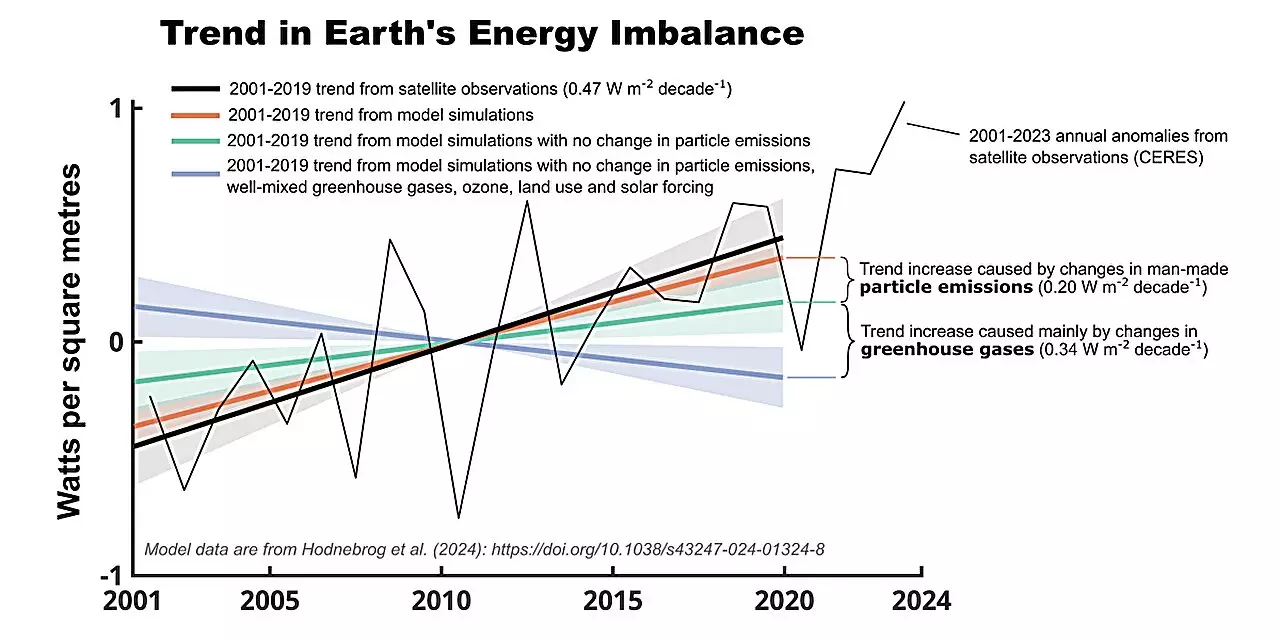A recent study conducted by CICERO has revealed a concerning trend – reductions in emissions of tiny particles, which are the major cause of global air pollution, have had unforeseen consequences on the Earth’s climate system. This study, published in Communications Earth & Environment, highlights the fact that the decrease in emissions has led to an increase in heat entering the Earth’s atmosphere from the sun, resulting in an Earth energy imbalance.
Satellite measurements clearly indicate that more heat is being absorbed by the Earth’s atmosphere from the sun than the amount of terrestrial energy escaping to space. This phenomenon, known as the Earth energy imbalance, leads to the accumulation of heat and subsequent warming of the Earth’s surface. While man-made emissions of CO2 and other greenhouse gases have traditionally been identified as the primary culprits behind global warming, the study reveals that emissions of particles have played a significant role in masking this warming.
Particles, particularly sulfate, have historically acted as a cooling agent by reflecting sunlight and thus helping to cool the planet. However, in the last few decades, the cooling effect of these particles has reversed due to extensive measures aimed at improving air quality worldwide. The researchers used simulations with advanced global climate models and compared the results to satellite measurements spanning the 2001–2019 period. The study found that the recent reductions in man-made particle emissions had to be factored in to accurately align the models with the satellite data.
According to Øivind Hodnebrog, the lead author of the study and a senior researcher at CICERO, understanding the increasing Earth energy imbalance is crucial in comprehending the factors driving global warming, sea level rise, extreme weather events, and other consequences of climate change. The study emphasizes the significance of continuous satellite measurements of the Earth’s energy budget to monitor these changes effectively.
While it is essential to address air pollution due to its severe health implications and the millions of excess deaths it causes globally, the study highlights the trade-offs involved in improving air quality. Removing emissions of reflecting particles may lead to these cooling agents disappearing within days, whereas long-lived greenhouse gases like CO2 remain in the atmosphere for centuries post-emission. The removal of cooling particles inadvertently contributes to additional warming, a phenomenon anticipated by researchers but now supported by empirical evidence.
The research conducted by CICERO sheds light on the complex interplay between emissions, air pollution, and climate change. It underscores the need for a holistic approach to environmental policies that not only address air quality issues but also consider the broader implications on the Earth’s energy imbalance and climate system. Continuous monitoring and research in this area are essential to develop effective mitigation strategies and ensure a sustainable future for our planet.


Leave a Reply